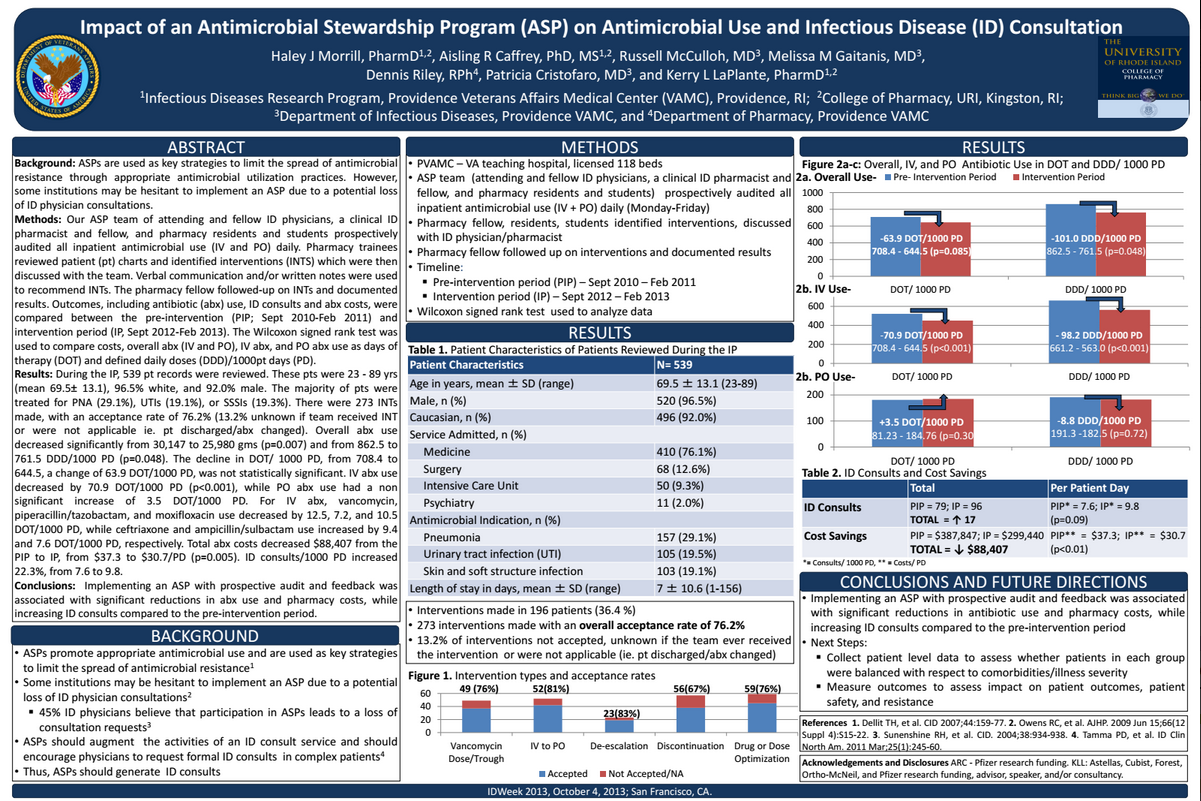- Presented at IDWeek on October 4, 2013; San Francisco, CA
- Haley J Morrill, PharmD1,2 , Aisling R Caffrey, PhD, MS 1,2 , Russell McCulloh, MD3 , Melissa M Gaitanis, MD3 Dennis Riley, RPh , Patricia Cristofaro, MD3 4 , and Kerry L LaPlante, PharmD1,2
Research
Background: ASPs are used as key strategies to limit the spread of antimicrobial resistance through appropriate antimicrobial utilization practices. However, some institutions may be hesitant to implement an ASP due to a potential loss of ID physician consultations.
Methods: Our ASP team of attending and fellow ID physicians, a clinical ID pharmacist and fellow, and pharmacy residents and students prospectively audited all inpatient antimicrobial use (IV and PO) daily. Pharmacy trainees reviewed patient (pt) charts and identified interventions (INTS) which were then discussed with the team. Verbal communication and/or written notes were used
to recommend INTs. The pharmacy fellow followed-up on INTs and documented results. Outcomes, including antibiotic (abx) use, ID consults and abx costs, were compared between the pre-intervention (PIP; Sept 2010-Feb 2011) and intervention period (IP, Sept 2012-Feb 2013). The Wilcoxon signed rank test was used to compare costs, overall abx (IV and PO), IV abx, and PO abx use as days of therapy (DOT) and defined daily doses DDD)/1000pt days (PD).
Related People: Kerry L. LaPlante
1. Infectious Diseases Research Program, Providence Veterans Affairs Medical Center (VAMC), Providence, RI;
2. College of Pharmacy, URI, Kingston, RI;
3. Department of Infectious Diseases, Providence VAMC, and
4. Department of Pharmacy, Providence VAMC

